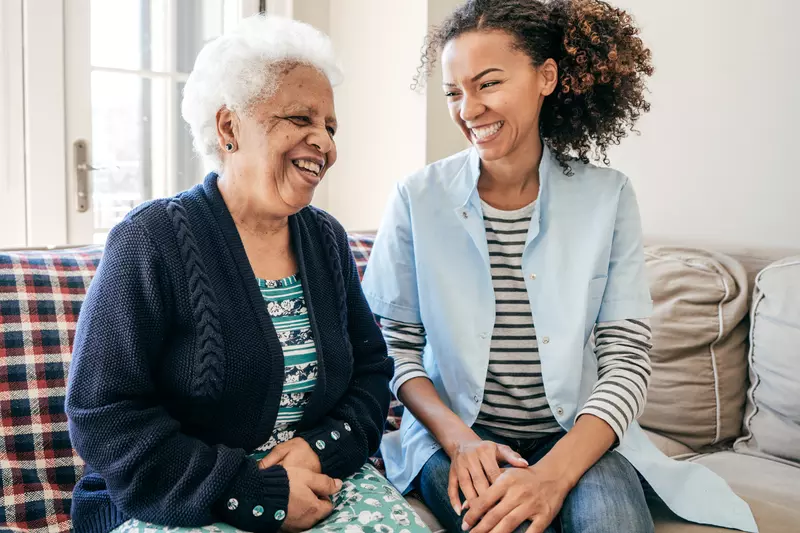- AdventHealth Hendersonville

A stroke is sometimes called a “brain attack,” bringing to mind its similarities with a heart attack.
Both are usually caused by blocked blood vessels that deprive a critical organ of blood. And both typically have the same cause: long-term conditions like high blood pressure and high cholesterol.
But recovery from stroke can pose unique challenges. The brain controls every aspect of our life, from the physical to the emotional, so a stroke can reach into every corner of our identity.
A runner can have trouble walking or a reader may struggle to see words on the page.
And depression is a common struggle. A stroke can cause mental health problems directly, by changing our brain chemistry, and indirectly, as a reaction to changes in quality of life.
These challenges don’t just affect the survivor; they can also reset the lives of the people around him or her. These five tips can help guide caregivers through their new role.
1. Acknowledge What Has Changed
It may seem as if talking about what your loved one has lost puts a focus on the negative. But, according to the National Stroke Association, acknowledging a loss — for both the survivor and a caregiver — is a healthy way to process grief.
2. Reach out for Help
If you’re accustomed to handling things on your own, this may be a new one for you.
Support groups exist for caregivers, too, so consider looking for one in your area to meet people who are going through what you are.
It’s also important to look for rehabilitation services, including these common options for stroke survivors who live at home:
- Outpatient programs: An “outpatient” program means you and the stroke survivor can visit a hospital or other facility for rehabilitation without being admitted there.
- Home-based programs: Just like it sounds, this means you and the stroke survivor can be visited at home by a nurse or other professional.
3. Take Care of Yourself
Especially as the months and years pass, caregivers may struggle to cope with the demands placed upon them. This doesn’t make you a bad caregiver — it makes you a normal person.
But if you aren’t taking care of yourself, it’s tough to take care of someone else.
You may have heard the analogy with airplane oxygen masks: You’re supposed to put on your own before helping others.
This includes being patient with yourself. Nobody taught you how to be a caregiver; you’re going to make some mistakes along the way.
4. Remind the Survivor What’s in Their Control
Though losing control is often a consequence of a stroke, having the ability to direct the course of our own lives is a fundamental human need. So reclaiming at least some control is a must for stroke survivors and their caregivers.
A stroke survivor still has the ability to connect socially with friends and family and continue to work to recover and grow mentally, emotionally and spiritually. Depending on their stroke, they may be able to enjoy some or most of what they once did, perhaps with some modifications.
5. Be Proud of Yourself
Caregivers are given a responsibility they didn’t ask for. It can be easy to see this duty as a burden you carry.
But caregivers can also draw pride and strength from the help they give to a stroke survivor. Their loving care is often the reason the stroke survivor is able to continue living independently at home.
So, remember: You’re providing a priceless gift.
AdventHealth recognizes the vital role that caregivers play in the whole-person health of our patients. That’s why we stand behind caregivers with information, support groups and medical care in your community.



